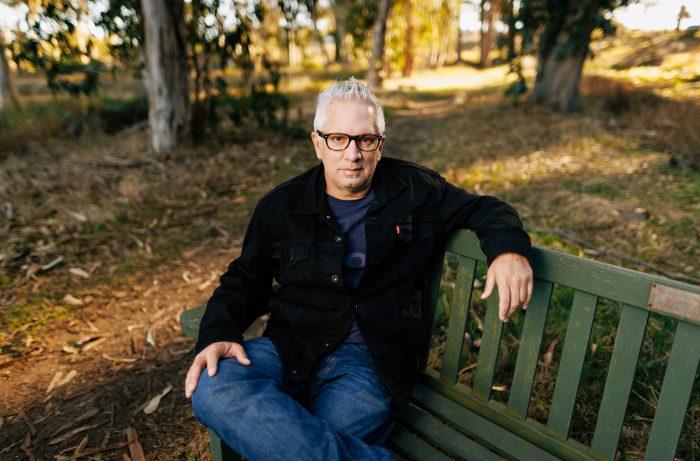
Photo by Joe Johnston
Short bio:
Nicholas Belardes’s work often combines elements of literary, horror, and science fiction. The New York Times Book Review said his first book, The Deading “perfectly balances social critique, lyricism and ghastliness. It’s a claustrophobic mosaic of a novel, and an outstanding debut.” Belardes’s follow up, Ten Sleep (2025), blends elements of gothic and eco-horror with Western fiction. While attending UCR Palm Desert’s MFA Program, Belardes received its Founder’s Award. When not writing, he’s either birdwatching or teaching essay writing at Cal Poly San Luis Obispo’s Ethnic Studies Program.
Additional bio:
Nicholas Belardes has published short fiction in the first Chicano sci-fi anthology, El Porvenir Ya!, and Ohio State University Press’s Speculative Fiction for Dreamers. He’s also written Chicano fiction for Carve Magazine, Southwestern American Literature, Pithead Chapel and other anthologies and journals.
Nonfiction Pulitzer Prize nominee Kim Barnes describes his nonfiction as “part poet, part storyteller, part historian, part pop culture cartographer,” while Pulitzer-winning Los Angeles Times journalist Christopher Knight called his Boom California (University of California Press) essay, “South Bakersfield’s Confederate Remains,” an “engaging” and necessary read in the fight against infrastructural racism and student indoctrination. Belardes also contributed nonfiction to The Nervous Breakdown and Latino Rebels.
Between 2008-2010, Belardes fused technology and literature by writing Small Places on Twitter. The first twitterature in novel form and a critique of corporate culture, his work is considered integral to the field of Digital Literature. Small Places has been talked about around the world in university classrooms and featured in newspapers and news sites, including the U.K. Guardian, Vogue, Telegraph, Reuters, Christian Science Monitor, Wired, Folha, The Bohemian, and many more.
Belardes continues to write about the American West, the Chicano experience, birds, and the natural world. He currently teaches writing in the Ethnic Studies Department at Cal Poly San Luis Obispo. He is represented by The Jud Laghi Agency. He’s currently working on a time travel horror novel.
You can find him on BlueSky, Insta, Facebook, Threads. He won’t be on Twitter much longer.